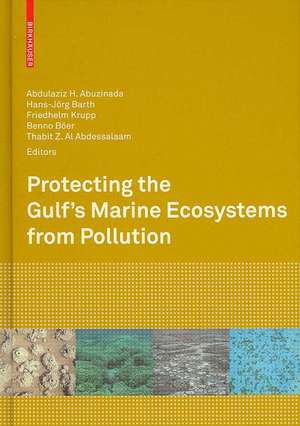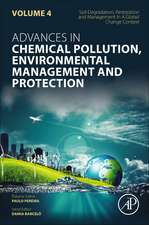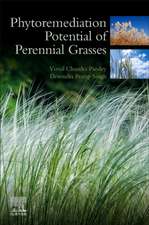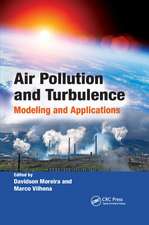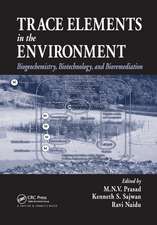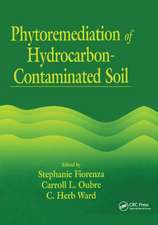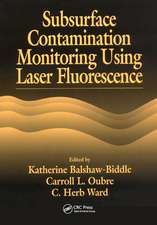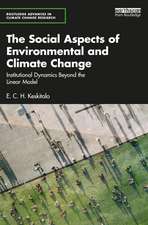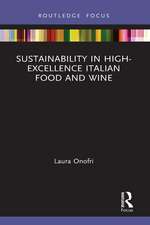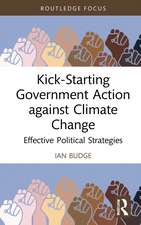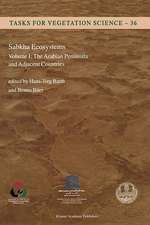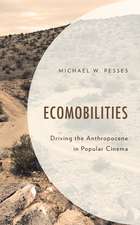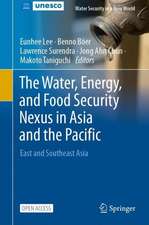Protecting the Gulf's Marine Ecosystems from Pollution
Editat de Abdulaziz H. Abuzinada, Hans-Jörg Barth, Friedhelm Krupp, Benno Böer, Thabit Zahran Al Abdessalaamen Limba Engleză Hardback – 17 dec 2007
Preț: 576.85 lei
Preț vechi: 721.07 lei
-20% Nou
Puncte Express: 865
Preț estimativ în valută:
110.38€ • 114.50$ • 92.04£
110.38€ • 114.50$ • 92.04£
Carte tipărită la comandă
Livrare economică 24-29 martie
Preluare comenzi: 021 569.72.76
Specificații
ISBN-13: 9783764379469
ISBN-10: 3764379464
Pagini: 304
Ilustrații: XVI, 285 p.
Dimensiuni: 165 x 235 x 22 mm
Greutate: 0.68 kg
Ediția:2008
Editura: Birkhäuser Basel
Colecția Birkhäuser
Locul publicării:Basel, Switzerland
ISBN-10: 3764379464
Pagini: 304
Ilustrații: XVI, 285 p.
Dimensiuni: 165 x 235 x 22 mm
Greutate: 0.68 kg
Ediția:2008
Editura: Birkhäuser Basel
Colecția Birkhäuser
Locul publicării:Basel, Switzerland
Public țintă
ResearchCuprins
Biogeophysical setting of the Gulf.- The coastal vegetation of the western and southern Gulf — characterisation and conservation aspects.- Impact of oil pollution and increased sea surface temperatures on marine ecosystems and biota in the Gulf.- Integrated management of pollution stress in the Gulf.- Efforts of regional and international organisations in reducing levels of pollution in the Gulf.- Oil pollution preparedness in the ROPME Sea Area.- Remote Sensing: A tool for managing marine pollution in the Gulf.- Coastal pollution in Bahrain and its management.- Pollution from sea based sources.- Impacts of seawater desalination plants on the marine environment of the Gulf.- Importance of the freshwater influx from the Shatt-Al-Arab River on the Gulf marine environment.- The compensation schedule approach for the assessment of oil spill damages to marine resources of the RSA.- The impact of the Gulf War (1990 – 91) oil release upon the intertidal Gulf coast line of Saudi Arabia and subsequent recovery.- Rapid assessment indicators of oil spill recovery in salt marsh ecosystems.- Shoreline bioremediation after the 1991 Gulf War oil spill.- Evaluation of arid salt marsh restoration techniques.
Textul de pe ultima copertă
The Gulf is endowed with valuable natural resources and a great biodiversity of plant and animal species. Sustainable living in the Gulf area is dependent upon such resources provided by the sea. Large areas of its coastal zone including important marine habitats are currently threatened by increasing stress on the Gulf ecosystem due to an accelerated coastal development during the last few years. Some of the world’s largest landfill and dredging projects are found in the coastal areas, and the world’s main crude oil shipping routes pass through the open sea. A variety of human impacts are contributing to marine pollution, such as oil, sediments, waste, thermal, chemical, and other forms of pollution.
This volume reviews present sources and levels of pollution in the Gulf, assesses their causes and effects on biota and ecosystems, and identifies gaps and obstacles currently preventing an effective integrated transboundary management of the marine and coastal resources. It highlights preventive and remedial measures reducing levels of pollution and mitigating adverse impacts.
The book is an important source of information for environmental managers, researchers, administrators, and decision makers, contributing towards an improved environmental management.
This volume reviews present sources and levels of pollution in the Gulf, assesses their causes and effects on biota and ecosystems, and identifies gaps and obstacles currently preventing an effective integrated transboundary management of the marine and coastal resources. It highlights preventive and remedial measures reducing levels of pollution and mitigating adverse impacts.
The book is an important source of information for environmental managers, researchers, administrators, and decision makers, contributing towards an improved environmental management.
Caracteristici
Supported by UNESCO, Doha
